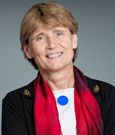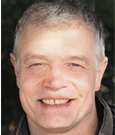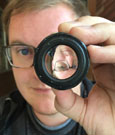
Justin Crocker
EMBL Heidelberg
Germany
EMBO Practical Course
EMBL is committed to sharing research advances and sustaining scientific interaction throughout the coronavirus pandemic. We are delighted to announce that the course is going virtual and invite you to join us online.
The fruit fly Drosophila has played a leading role in the discovery and dissection of basic biological processes, uncovering general principles of development, evolution and disease. Almost a century of research has generated a powerful genetic toolbox that provides a unique arsenal of methods that can tackle almost any biological question. This, combined with exciting new technologies developed in recent years have changed the way Drosophila research is conducted, enabling biologists to address questions that were impossible to study before.
The course has three main objectives:
– First, to educate and inspire the next generation of scientists, by providing an up-to-date overview and hands-on training of contemporary and classic topics, spanning state-of-the-art techniques in genetics, imaging, and genomics. Participants will obtain an essential knowledge base combined with practical training, forming a launch-pad for their research.
– Second, to stimulate the exchange of ideas between established and early-career scientists, enabling participants to better direct their research trajectory.
– Third, to provide networking opportunities, hence fostering collaborations and career development.
The new course combines interactive theoretical discussions that have been successfully used to train generations of Drosophila researchers for nearly 30 years combined with cutting-edge experimental approaches taught by experts in the field.
The course is aimed at PhD students and early post-doctoral researchers who are using Drosophila to answer diverse research questions.

EMBL Heidelberg
Germany

EMBL Heidelberg
Germany

Ludwig-Maximilians-Universität München
Germany

Institut de Génétique Moléculaire de Montpellier
France

University of Rochester
USA

New York University
USA

Brown University
USA

Harvard Medical School
USA

The University of Manchester
UK

University of Veterinary Medicine Vienna
Austria

Instituto Gulbenkian de Ciência
Portugal

Max Planck Institute of Molecular Cell Biology and Genetics
Germany
Max Delbrück Center for Molecular Medicine
Germany
Ludwig-Maximilians-Universität München
Germany

Brown University
USA

EMBL Heidelberg
Germany
Instituto Gulbenkian de Ciência
Portugal

EMBL Heidelberg
Germany

Brown University
USA
Instituto Gulbenkian de Ciência
Portugal

University of Georgia
USA

EMBL Heidelberg
Germany

EMBL Heidelberg
Germany

Stowers Institute for Medical Research, USA

Course and Conference Officer
EMBL Heidelberg
Germany
Got something to say? Tweet it! #EMBODrosophila
The following times are used in the programme below:
To find out the equivalent time zone in your location, enter Berlin, the CET programme time and your city into the Time Zone Converter.
Topic: Introduction to Drosophila as a model for biology and evolution
| 12:45-13:00 (CET) 06:45-07:00 (EST) |
Welcome and check-in |
| 13:00-14:00 (CET) 07:00-08:00 (EST) |
Ice breaker – flash talks |
| 14:00-14:25 (CET) 08:00-08:25 (EST) |
Using Drosophila in biomedical research Andreas Prokop – The University of Manchester, United Kingdom Live Q&A (based on material in pre-recorded talk) |
| 14:25-14:50 (CET) 08:25-08:50 (EST) |
Drosophila functional and evolutionary genomics Amanda Larracuente – University of Rochester, USA Live Q&A (based on material in pre-recorded talk) |
| 14:50-15:15 (CET) 08:50-09:15 (EST) |
Break |
| 15:15-16:15 (CET) 09:15-10:15 (EST) |
Interactive Session: How to design a genetic mating scheme Andreas Prokop – The University of Manchester, United Kingdom Group exercise |
| 16:15-16:30 (CET) 10:15-10:30 (EST) |
Break |
| 16:30-17:30 (CET) 10:30-11:30 (EST) |
Student presentations |
| 17:30-18:15 (CET) 11:30-12:15 (EST) |
Virtual social programme Speed networking |
| 18:15 (CET) 12:15 (EST) |
End of day 1 – Continued group work, access to networking and discussion platforms, pre-recorded talks |
Topic: Drosophila genetics and genome engineering
| 12:45-13:00 (CET) 06:45-07:00 (EST) |
Overview of the day |
| 13:00-13:25 (CET) 07:00-07:25 (EST) |
Genetic screens and Mosaic Analysis in Drosophila Ruth Lehmann – New York University School of Medicine, USA Live Q&A (based on material in pre-recorded talk) |
| 13:25-13:50 (CET) 07:25-07:50 (EST) |
RNAi and CRISPR tools for Functional Genomics studies in Drosophila cell lines Norbert Perrimon – Harvard Medical School, USA Live Q&A (based on material in pre-recorded talk) |
| 13:50-14:15 (CET) 07:50-08:15 (EST) |
In vivo CRISPR in flies Kate O’Connor-Giles, Rajan Thakur, Scott Gratz – Brown University, USA Interactive workshop |
| 14:15-14:45 (CET) 08:15-08:45 (EST) |
Networking break |
| 14:45-15:45 (CET) 08:45-09:45 (EST) |
Interactive Session Group exercise |
| 15:45-16:00 (CET) 09:45-10:00 (EST) |
Break |
| 16:00-17:00 (CET) 10:00-11:00 (EST) |
Student presentations |
| 17:00 (CET) 11:00 (EST) |
End of day 2 – Continued group work, access to networking and discussion platforms, pre-recorded talks |
Topic: Advanced Imaging in Drosophila
| 12:45-13:00 (CET) 06:45-07:00 (EST) |
Overview of the day |
| 13:00-13:30 (CET) 07:00-07:30 (EST |
Advanced Imaging in Drosophila Pavel Tomancak – Max Planck Institute of Molecular Cell Biology and Genetics, Germany Interactive Session |
| 13:30-14:00 (CET) 07:30-08:00 (EST |
Imaging transcription, translation, and beyond Mounia Lagha – Institut de Génétique Moléculaire de Montpellier, France Interactive Session |
| 14:00-14:30 (CET) 08:00-08:30 (EST) |
Break |
| 14:30-15:00 (CET) 08:30-09:00 (EST) |
Imaging across scales Justin Crocker – EMBL Heidelberg, Germany Interactive Session |
| 15:00-15:45 (CET) 09:00-09:45 (EST |
Panel session |
| 15:45-16:00 (CET) 09:45-10:00 (EST |
Group photo Break |
| 16:00-17:00 (CET) 10:00-11:00 (EST) |
Student presentations |
| 17:00 (CET) 11:00 (EST) |
End of day 3 – Continued group work, access to networking and discussion platforms, pre-recorded talks |
Topic: Transcriptional regulation and single-cell genomics
| 12:45-13:00 (CET) 06:45-07:00 (EST) |
Overview of the day |
| 13:00-13:25 (CET) 07:00-07:25 (EST |
Transcriptional Regulation in Drosophila Robert Zinzen – Max Delbrück Center for Molecular Medicine, Germany Live Q&A (based on material in pre-recorded talk) |
| 13:25-13:50 (CET) 07:25-07:50 (EST |
Single Cell Genomics Eileen Furlong – EMBL Heidelberg, Germany Live talk |
| 13:50-14:15 (CET) 07:50-08:15 (EST) |
Networking break for virtual pub quiz |
| 14:15-14:45 (CET) 08:15-08:45 (EST) |
Genomics at single-cell resolution: open discussion on experimental and computational strategies Ana Veloso – Max Delbrück Center for Molecular Medicine, Germany and Stefano Secchia – EMBL Heidelberg, Germany Interactive Session |
| 14:45-15:00 (CET) 08:45-09:00 (EST |
Break |
| 15:00-16:00 (CET) 09:00-10:00 (EST |
Wrap-up session: Genetic mating scheme Andreas Prokop – The University of Manchester, United Kingdom |
| 16:00-17:00 (CET) 10:00-11:00 (EST) |
Student presentations |
| 17:00 (CET) 11:00 (EST) |
End of day 4 – Continued group work, access to networking and discussion platforms, pre-recorded talks |
Topic: Using Drosophila species diversity to understand biology
| 12:45-13:00 (CET) 06:45-07:00 (EST) |
Overview of the day |
| 13:00-14:15 (CET) 07:00-08:15 (EST) |
Drosophila species diversity, a reservoir of natural variation to address evolutionary questions Nicolas Gompel – Ludwig-Maximilians-Universität München, Germany Live Q&A (based on material in pre-recorded talk)
|
| 14:15-14:30 (CET) 08:15-08:30 (EST) |
Break |
| 14:30-15:45 (CET) 08:30-09:45 (EST |
Networking activities Group exercise |
| 15:45-16:00 (CET) 09:45-10:00 (EST |
Break |
| 16:00-17:00 (CET) 10:00-11:00 (EST) |
Student presentations |
| 17:00-17:15 (CET) 11:00-11:15 (EST) |
Closing remarks |
| 17:15 (CET) 11:15 (EST) |
End of course – Continued access to networking and discussion platforms, pre-recorded talks for 2 weeks after the start of the event |
Application is no longer possible. The course was limited to 20 participants.
Registration Fees (included admission and all course materials):
| Academia | 125 Euro |
| PhD Student | 125 Euro |
| Industry | 225 Euro |
Interested to find more about our upcoming courses? Sign up for our events newsletter.
Follow us on Twitter @EMBLEvents or visit our Facebook page to stay up to date with all of our events!
Below you will find the software and technical requirements for this course. You will need admin rights to be able to install the software on your computer and we recommend you try this before the course. If you do not have admin rights, please contact your technical support team in advance to make sure the software can be installed.
A networking platform like eCampus will be used to collaborate, communicate and network with all of the course participants. All participants will receive information on how to join shortly before the course. We recommend using Chrome, Safari or Mozilla Firefox browsers for eCampus.
A classroom application like Zoom will be used for the live talks and Q&A sessions. More information will be provided closer to the start of the course.
While using the software during the course, please make sure you have nothing else using your bandwidth. We recommend using a wired connection.
Please do:
Please don’t:
Additional information can be found in our Code of Conduct.
It is important to stay healthy and move around, especially when you are attending an event virtually. We have put together a few coffee break stretches and yoga videos in the events Slack workspace for you to enjoy during the event.
Questions during and after the talks can be asked in live streaming platform. The chair moderates the questions and shares them with the speaker. If time runs out or you think of a question later, you can use Slack to ask your questions in the dedicated session channels or via direct message.
The programme is planned based on Central European Time (CET), unless otherwise stated. As many virtual participants are attending from around the world, we do our best to accomodate as many timezones as possible when creating the programme. Please take your time zone into consideration when planning your attendance.
Sponsorship Opportunities
We offer a variety of event sponsoring possibilities, with the flexibility to select a set sponsorship package or combine individual sponsorship options to suit your event budget. Discounts are available for companies sponsoring multiple events at EMBL Heidelberg. View other conferences, or contact sponsorship@embl.de for further information.
If you are interested in becoming a media partner of this event, please visit our media partnerships webpage.
